De-comodified Defined
Food has become so intertwined with the capitalist system that it has become solely about how to extract the most profit from each crop. We believe that this is wrong; food is not in the same category as other kinds of consumer goods, because it is too deeply connected to our environment, to our heritage, and to our diversity.
However, the fact is that we live in a capitalist system, so it’s not possible to simply remove yourself from it altogether. And of course, as a company, we have to be sustainable economically. The system is full of contradictions. But what we’re trying to do is build a company that is not solely profit-driven, but that actually recognizes the social, environmental, and cultural importance of food, and is willing to sacrifice on profit to make sure that these elements are truly operating in a fair and just manner for everyone involved—beyond the shallow certifications.
That’s one of the reasons we funded on Kickstarter, instead of turning to venture capitalism. We didn’t want to be dependent on shareholders who demand a return on investment. We are people-driven, through and through, and are committed to learning and unlearning throughout this journey.
Most chocolate brands, even the ones that are branded as ethical, still only meet minimum standards within the flawed certification systems like Fair Trade or 1% for the planet—the rest is branding. This doesn’t make a dent in the exploitative dynamics of the cacao industry in Africa.
Bantu Chocolate was created from the beginning to re-imagine what the industry could look like if we went beyond these certifications and created a model that is truly supportive to the people involved with it. One that funnelled wealth back into the communities it is a part of, rather than extracting from it.
We do not buy from anyone external to us—we grow our own cocoa on our family farm, and use that to manufacture our single origin bean-to-bars.
It’s how we make sure that the entire process is fair and ethical; we can make decisions together and adapt based on our needs, rather than having a transactional and commodified relationship with external traders.
We aren’t Fair Trade because we believe it is a minimum standard that we can exceed by simply paying our collaborators a truly living wage. Fairtrade, UTZ and Rainforest Alliance to name a few have become a hot marketing tool in recent years, but it often comes with relatively high hidden costs for the people that are meant to be benefitting from it.
These certifications are not a panacea to improve social outcomes or overall incomes of smallholder farmers and recent studies even highlighted the fact that non-certified farmers were generating substantially higher incomes compared to Fairtrade-certified farmers. We believe in sharing profits with the community and investing in them so that they can freely decide how best to solve their own problems, rather than fit into an existing structure.
Commodities markets influence nearly all aspects of our daily lives. From the supermarket, to the gas station, to the energy materials that are used to heat and cool our homes. The price of cocoa is set in the commodities market, which is driven by supply and demand. Within this market, cocoa, like soy, sugar and cotton, is classified as a ‘soft commodity’, meaning it is cultivated, not mined or extracted from the Earth.
A COMMODITY IS A BASIC MATERIAL THAT IS USED AS AN INPUT IN THE PROCESS OF PRODUCING REFINED GOODS. SO for example crude oil from one source is the same material (and used for the same purposes) as brent crude oil from a different source that is transformed then used to produce petrol, lipstick, chewing-gum, plastic, polyester for clothes.
Beans get sold in vast bulk shipments through integrated supply chains called processors. The biggest to be named are: Barry Callebaut, Olam, ECOM, Sucden, and Cargill.
These companies operate along the entire cocoa supply chain, with sourcing and processing operations in the Ivory Coast, Ghana, Brazil, Cameroon, South America and Indonesia. They then turn the beans into finished chocolate goes from a wide variety of manufacturers to what seems at first glance to be a wide variety of consignees. A closer look reveals, however, that these are often different iterations of the processor company’s name.
First of all, approximately half of the cocoa is still bought via indirect supply chains and the involved companies do not know its origin. Cocoa processing involves the conversion of cocoa beans into different forms such as cocoa liquor, cocoa butter and cocoa powder have applications in a number of other industries as well such as cosmetics. Processed cocoa products are then sold to manufacturers such as Mars, Hershey’s, Ferrero, Cadbury, Lindt und Sprüngli (etc.)
A small group of companies trade and process the vast majority of all cocoa handled on the world market : Barry Callebaut, Cargill, Olam, Blommer, Mondelez, Guan Chong, ECOM Coco, BT Cocoa, Nestlé and Transmar Group – each sourcing from millions of farmers through cocoa trading companies. This gives them an immense market power – over cocoa farmers.
Not to mention that these companies often own chocolate brands and white label.
Traceability sheds light on where cocoa comes from to address problems at the farm level, but it also needs to show where cocoa products go. Large volumes of Cameroonian cocoa beans can be sold to Ivory Coast and Ghana, then sold to the U.S. via Belgium and Spain. Being that 43 percent of cocoa beans from Ghana and Cote d’Ivoire pass through Europe—specifically Spain and Belgium—often re-exported without any value addition, this is as much revenue and profits that could go to farmers that are diverted to foreign traders instead.
Researchers have also found a real cocoa laundering system where some of the world’s largest cocoa trader would use different alias and name iterations.
While capitalism brought unprecedented levels of development to Europe, the legacy of this exploitation has persisted since colonial independence in the form of prolonged economic dependence, internal political ethnic conflicts, and inadequate government programs and infrastructure.
Africa’s commodity-dependence is in fact a byproduct of the hundreds of years of colonialism, extraction, and imperialism that have birthed unfair trade deals dictated by former colonial powers, and a failure of governance.
Cameroon was colonized first by the Portuguese, then the German, and finally the English and French. Up until today the national currency, Francs CFA is still printed in France and the country is still part of Commonwealth.
The aim was to exploit the physical, human, and economic resources of an area to benefit the colonizing nation. European powers pursued this goal by encouraging the development of a commodity-based trading system, a cash crop agriculture system, and by building a trade network linking the total economic output of a region to the demands of the colonizing state.
Countries like India, Madagascar and Congo end up relying heavily on exports to keep their economies going, but transnational corporations have the ultimate power to set the prices. This leaves countries caught in a loop of selling products at prices that leave producers far below the poverty line and not many ways to get out of the situation.
Yes. The child slavery problem is far from fixed in Africa. Children are stolen, sold and trafficked to work on cacao farms from a young age, sometimes to support their families, sometimes because they were promised by traffickers that the job would pay well. But once they are on the farm, the job pays little to nothing at all, and sometimes they do not see their families for years, if ever.
The 70 billion dollar chocolate industry could take real action to solve this problem by simply paying cacao farmers a living wage, but they have not, because the use of child and slave labour is how they keep their prices low.
Fair Trade and other certifications have tried to help the problem, but it operates on far too small of a scale to make any meaningful differences. Further, these certifications cost money to producers in auditing fees and other maintenance fees. It’s not that Fair Trade is fundamentally bad or not helpful, but it’s not enough, either—if we want truly transformative change, we have to go beyond these minimum standards.
Today, cocoa is traded on the Intercontinental Exchange (ICE) in London, which derives its prices from the African market, and the Net York Mercantile Exchange (NYMEX) which bases prices on the South-Asian market.
At Bantu Chocolate, we are growing and transform our own beans therefore, we freed ourselves from the commodity market price fluctuations. Furthermore, it’s important for us to understand the real costs of our food—often, the environmental and social costs of food are hidden in the low prices, but what we’re trying to do is show what it looks like to truly support our collaborators.
For a more detailed breakdown, please see the True Cost section on our product pages
Created by Richard and Martha Anker, ther Anker Living Income is a methodology for estimating living wages levels at the international level. They were some of the first people to challenge notions like minimum wages that are purely concerned with survival; instead they focus on metrics of decency and living comfortably.
A Living wage is the remuneration received for a standard workweek by a worker in a particular place sufficient to afford a decent standard of living for the worker and her or his family. Elements of a decent standard of living include food, water, housing, education, health care, transportation, clothing, and other essential needs including provision for unexpected events.
At Bantu Chocolate we ensure that everyone who works with us receives a living wage, not a minimum wage as set by the government or any other metric, but by working with our collaborators to ensure they have what they need.
One of the best way to ‘level the playing field’ is to work with the producers, to help them retain as much of the value of their harvest as they can, just the same way dairy farmers have to in Europe. In this case, we are the producers.
At this stage, we are focusing on creating tasty chocolate bars and building the relationships with our collaborators and making sure they are truly supported, and as we grow, we can expand our opportunities further to include goals like local manufacturing and the creation of further employments. Another thing to factor in are machinery costs along with the export/import taxes that we are not yet financially equipped for.

